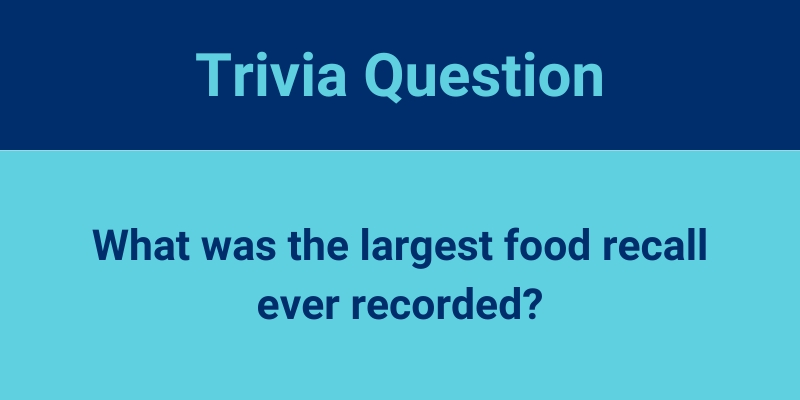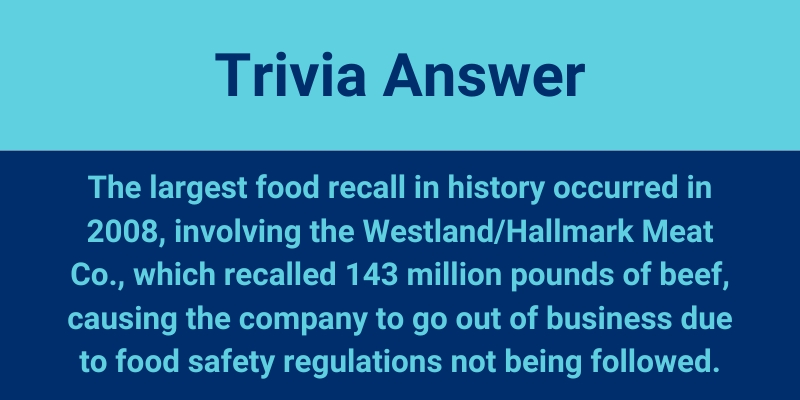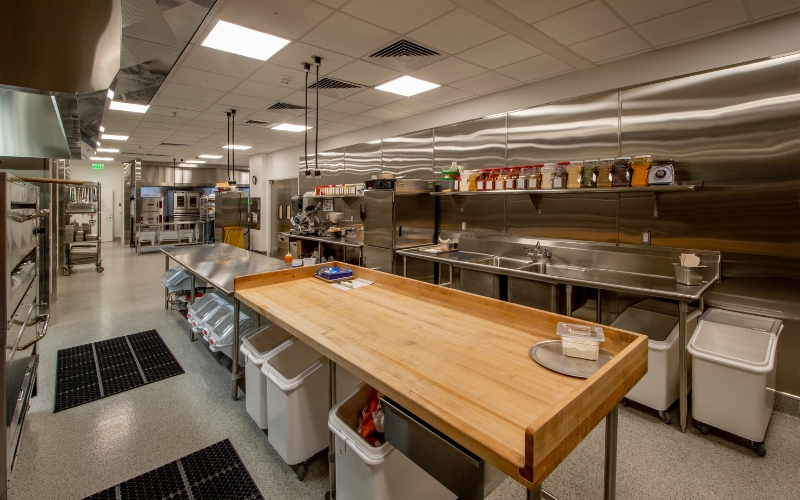In the food processing industry, the focus on sanitation often centers around surfaces, equipment, and handling practices. However, one critical factor that can significantly impact food safety is often overlooked: indoor air quality. Poor indoor air quality can lead to contamination, creating a hidden threat that may result in costly food recalls. Understanding and addressing this risk is essential for maintaining the highest standards of food safety. This is where Synexis and its innovative Dry Hydrogen Peroxide (DHP®) technology can play a pivotal role.
The Hidden Risks of Poor Indoor Air Quality
When considering food contamination, we often envision direct contact with contaminated surfaces, equipment, or improper handling. However, airborne pathogens and particulates also seriously threaten food safety. Microorganisms can be present in the air and settle on food products during various processing stages, from preparation to packaging.
Here are some of the key ways indoor air quality can affect food safety:
- Airborne Contaminants: Pathogens such as Salmonella, Listeria, and E. coli can be transmitted through the air. This is especially true in environments with poor ventilation or ineffective air filtration. Once these pathogens settle on food products or processing surfaces, they can lead to contamination.
- Moisture and Humidity: High humidity levels can promote mold and bacteria growth in the air, which can then be transferred to food products. Mold spores are particularly concerning as they can grow rapidly once they find a suitable environment on food items.
- Cross-Contamination: Poor air quality can lead to cross-contamination in facilities where multiple products are processed. Airborne particles from one product can settle on another, leading to unintended allergen exposure or the spread of pathogens.
The Role of DHP in Enhancing Indoor Air Quality in Food Processing Facilities
To mitigate the risks associated with poor indoor air quality, it’s crucial to implement technologies that can continuously control airborne contaminants. This is where DHP technology comes in. DHP creates a continuous flow of DHP in the air and on surfaces, reducing the presence of harmful microorganisms that can lead to contamination and recalls.
Here’s how DHP improves indoor air quality in food processing facilities:
- Continuous Airborne Pathogen Reduction: It operates around the clock, continuously breaking down airborne pathogens like bacteria, viruses, and mold spores. By reducing the microbial load in the air, Synexis helps prevent these contaminants from settling on food products or surfaces.
- Humidity Control: By reducing microbial presence in the air, DHP can help manage the effects of humidity, which is a key factor in mold and bacteria growth. This is especially important in areas where moisture levels are difficult to control.
- Comprehensive Facility Coverage: The technology is designed to reach every corner of a facility, including hard-to-clean areas like HVAC systems and storage rooms. This ensures that even the most difficult-to-reach areas are protected from airborne contaminants.
- Minimizing Cross-Contamination: With continuous air purification, Synexis helps minimize the risk of cross-contamination between different food products. This is particularly valuable in facilities handling multiple items, ensuring airborne particles do not compromise the safety of other products.
The Connection Between Air Quality and Food Recalls
Food recalls are often the result of contamination that could have been prevented with better air quality management. When airborne pathogens contaminate food products, the consequences can be severe. They can lead to recalls, financial losses, and damage to a brand’s reputation. By proactively managing indoor air quality with DHP, food processors can significantly reduce the risk of contamination, thereby lowering the likelihood of recalls.
A Proactive Approach to Food Safety
In today’s highly regulated food industry, maintaining optimal air quality is not just an option—it’s a necessity. DHP offers food processors a powerful tool to enhance their food safety protocols by addressing the often-overlooked indoor air quality issue. By integrating this advanced technology into their facilities, food processors can protect their products from airborne contaminants, reduce the risk of recalls, and ensure the highest food safety standards.
Traditional sanitation practices are essential, but they aren’t enough to fully protect against the risks posed by poor indoor air quality. A proactive solution like Synexis that works continuously without anyone ever having to leave the room can help food processors safeguard their operations against the hidden dangers in the air. This will protect not only consumers, but the integrity of the brand as well.
To speak with an IAQ expert from Synexis, fill out this form and we’ll be in touch as soon as possible.
And to learn more about Synexis, click here.











